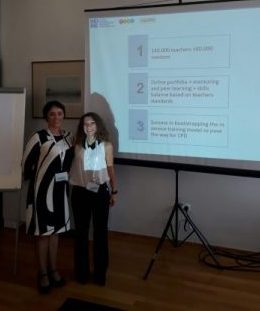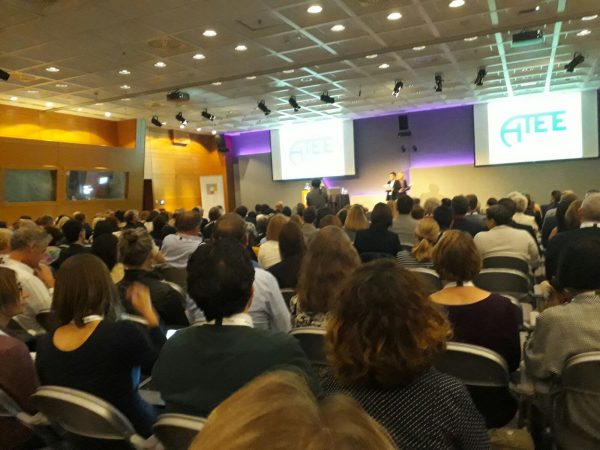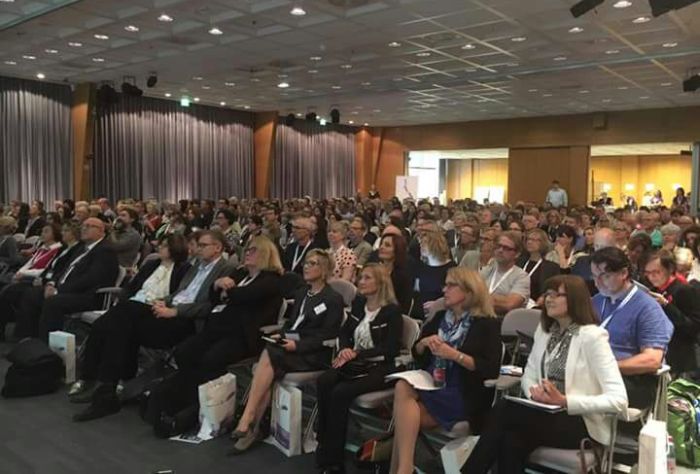indireinforma
Si sta svolgendo a Dubrovnik in Croazia la 42esima edizione della Conferenza annuale dell’ATEE, l’Associazione Europea per la Formazione degli Insegnanti, un’organizzazione non governativa europea senza scopo di lucro che raggruppa formatori e ricercatori attivi in Europa e nel mondo.
Quest’anno i contributi della tre giorni, dal 23 al 25 ottobre, ruotano intorno a un tema attualissimo, quello delle nuove prospettive e sfide dell’insegnamento, con un’attenzione particolare alle disuguaglianze nell’accesso all’istruzione.
 Le ricercatrici Indire Maria Chiara Pettenati e Giuseppina Rita Mangione parteciperanno con un contributo scientifico dal titolo Innovative induction model and evidence-based policy-making. The Italian experience. Il lavoro propone i risultati comparativi dei 3 anni di sperimentazione del nuovo modello formativo per i docenti neoassunti, che ha coinvolto in Italia circa 120 mila docenti e 80 mila tutor. Si presenteranno i risultati di un percorso di “alternanza” tra immersione e distanziamento che ha visto nel portfolio online un dispositivo chiave per lo sviluppo di una identità professionale e di un atteggiamento positivo verso l’autovalutazione, la documentazione e la riflessione sulla pratica didattica.
Le ricercatrici Indire Maria Chiara Pettenati e Giuseppina Rita Mangione parteciperanno con un contributo scientifico dal titolo Innovative induction model and evidence-based policy-making. The Italian experience. Il lavoro propone i risultati comparativi dei 3 anni di sperimentazione del nuovo modello formativo per i docenti neoassunti, che ha coinvolto in Italia circa 120 mila docenti e 80 mila tutor. Si presenteranno i risultati di un percorso di “alternanza” tra immersione e distanziamento che ha visto nel portfolio online un dispositivo chiave per lo sviluppo di una identità professionale e di un atteggiamento positivo verso l’autovalutazione, la documentazione e la riflessione sulla pratica didattica.
Abstract dell’intervento:
If at an international level, the induction period is often optional and/or organized at a local level with different partners, in Italy the one-year induction period is mandatory, centrally organized by the Ministry and it involves a great number of teachers every year. The original regulation of the probation year – dated 1992 – underwent a complete overhaul from school year 2014/2015, according to the C.M. 6768 of 27/2/2015. The paradigm shift in the model, also called “alternation” is based on the assumption that the newly qualified teachers have to be accompanied by a dialogical process between theoretical and practical knowledge, where skills of critical analysis and interpretation of their own work are key elements of professionalism in teaching. The strengthening of such knowledge is particularly important in Italy, where teachers in their induction training have often prior extensive teaching experience, which they have acquired in previous long professional years before being hired. The Induction path grounds on evidence-based policy-making and it is based on a systematic and structural use of a teacher portfolio (balance of prior, final and prospective skills, peer tutoring/observation and documentation) and it is rooted on a finely tuned governance model. The new strategy has involved about 200,000 teachers and about 80,000 tutors, paving the way for an immediate and shared extension of some key elements of the model (the approach and the conceptual and technological devices) to all in-service teachers. It left a legacy of processes and devices, as envisioned in the National Training Plan for 2016-2019 for all Italian population of in-service teachers (about 800,000).
Tutti gli abstract sono disponibili qui
Sito web della Conferenza: http://www.atee2017.org/



